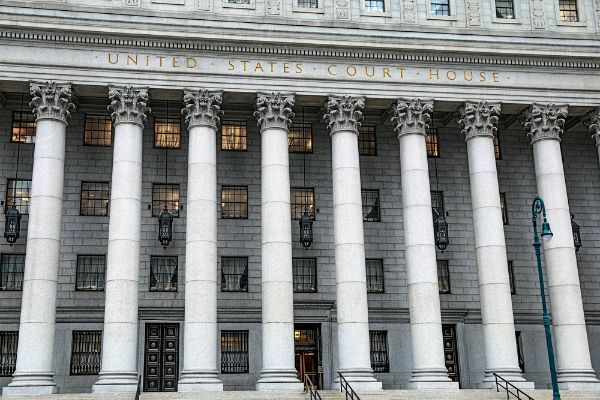
According to his latest book, retired Justice Stephen Breyer feels that the Republican-appointed majority of the Supreme Court’s ruling to overturn Roe v. Wade some two years ago represented a “deeply regressive aspect” of the court’s approach to law.
Breyer, an 85-year-old former presidential appointee of former President Clinton, retired in 2022, a few days after the landmark Dobbs v. Jackson Women’s Health Organization ruling—a 6-3 decision in favor of the Republican-appointed majority—that held states could enact their own laws limiting access to abortion.
The justice outlined his case against the “originalism” philosophy that Republican-appointed justices frequently follow in interpreting the Constitution in his new book, Why I Chose Pragmatism, Not Textualism.
“In Dobbs, the majority justice reasoning boiled down to one essential proposition: Because the public who ratified the founding Constitution and the Fourteenth Amendment failed to comprehend the document to safeguard reproductive rights, the document couldn’t be read, now, as protecting those rights.” Breyer said, referring to the landmark abortion case, which “highlights a deeply regressive characteristic of the originalist approach.”
Advocated by jurists like the late Justice Antonin Scalia and other GOP-appointed legal experts like Edwin Meese and Robert Bork, textualism and originalism are approaches to reading legislation and the Constitution that some justices on the court feel to be appropriate. Textualism usually requires a literal reading of the Constitution’s wording, whereas originalism needs historical accuracy.
Throughout his 28-year tenure on the bench, Breyer—dubbed the pragmatic judge of the high court—has developed a body of legal precedent that takes into account the real-world ramifications of the court’s decisions, frequently emphasizing how they will affect the people who will have to live with the results.
Along with Dem-appointed Justices Elena Kagan and Sonia Sotomayor, the departed justice stated that their disagreement with the Dobbs majority “pointed out that ‘people’ did not certify the original Constitution in 1788 or the 14th Amendment in 1868.”
Breyer stated that “white males did” and that “at any of these moments in history, women were not recognized as full members of the political community.”
Breyer stated that “originalism would restrict the kinds of liberty interests cognizable under the Fourteenth Amendment to those contemplated by men who existed in a time when women were not considered to have a legal identity separate from their husbands.” The “face of this progress” included women’s voting rights in 1920 and their “right to an abortion” following the 1973 Roe v. Wade decision.
Therefore, the majority “cosign[ed] women to second-class citizenship” by stating that “we must interpret our founding charter as perceived at the time of ratification,” according to Breyer.
Breyer wrote in his book that there is certain “evidence that we are in the middle of a paradigm shift that is moving in an originalist direction,” indicating that he does not view the Republican-appointed justices of the high court as the ones who are strictly using the originalist and textualist approaches. He referenced articles by a few minority Democratic-appointed justices who have supported their paradigm for resolving disputes by emphasizing historical and legislative content.
As the court proceeds, it “should become evident that rigid interpretations of textualism and originalism simply will not work,” the retiring justice clarified.
In reaction to the widely held belief in a “living constitution” that pervaded the early 20th century, federal courts adopted originalism and textualism as a wider body of jurisprudence throughout the 1980s. Attorney General Edwin Meese of the Reagan administration was advocating for a “jurisprudence based on first principles [that] is not conservative nor liberal,” but rather one that reads the Constitution according to its original language, during speeches he was giving at the Federalist Society at the time.
The justices have been more forthright in their opinions of Breyer’s legacy in recent media appearances, even though the majority of his book consists of scholarly observations about his time on the court rather than anecdotes about his interactions with his eight former colleagues.
In an interview with NBC News’s Meet the Press on Sunday, Breyer expressed his “disposition” to reverse Roe or Planned Parenthood v. Casey. However, he does think that the Supreme Court may one day reconsider the Dobbs decision.
“Who knows?” stated Breyer.
These content links are provided by Content.ad. Both Content.ad and the web site upon which the links are displayed may receive compensation when readers click on these links. Some of the content you are redirected to may be sponsored content. View our privacy policy here.
To learn how you can use Content.ad to drive visitors to your content or add this service to your site, please contact us at [email protected].
Family-Friendly Content
Website owners select the type of content that appears in our units. However, if you would like to ensure that Content.ad always displays family-friendly content on this device, regardless of what site you are on, check the option below. Learn More





